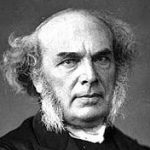Lesson Focus: This lesson is about expressing thanks to God for His many expressions of goodness toward us.
Invitation to Give Thanks: Psalm 107:1-3.
[1] Oh give thanks to the LORD, for he is good, for his steadfast love endures forever! [2] Let the redeemed of the LORD say so, whom he has redeemed from trouble [3] and gathered in from the lands, from the east and from the west, from the north and from the south. [ESV]
In its own setting Psalm 107 is a praise song of the regathered people of Israel after their Babylonian bondage. Thus Psalms 105, 106, and 107 form a trilogy. Psalm 105 recounts Israel’s experience from the time of God’s covenant with Abraham to the people’s entrance into the promised land; Psalm 106 tracks their unfaithfulness during that same time period and reflects the years of their exile to Babylon; and Psalm 107 thanks God for their deliverance from that exile.
[1-3] The psalmist begins by urging the people of God to thank Him, not for any specific favor, but simply for His goodness and unending love. He calls God Jehovah, using the name that stresses God’s eternal, unchanging essence, conveying the idea that God’s goodness is eternal and unchangeable. One of the great distinctions between God and man is His goodness. And the distinction holds not only between God and sinful man, but also between God and man in his original created state of innocence. Before Adam and Eve ever sinned, they were distinguished from God by His goodness, which is vastly different from the goodness of any created thing. The seventeenth century Puritan Stephen Charnock, in his magnificent study of the attributes of God, points out four chief senses in which God’s goodness differs from man’s. (1) Only God is originally good, good of Himself. All created goodness flows out of the fountain of God’s goodness. But God depends upon no other for His goodness. (2) Only God is infinitely good. A boundless goodness that knows no limits, a goodness as infinite as his essence, not only good, but best; not only good, but goodness itself, the supreme inconceivable goodness. (3) Only God is perfectly good. He is good without deprivation, because He has the whole nature of goodness. Therefore the goodness of God is the measure and rule of goodness in everything else. (4) Only God is immutably good. Other things may be perpetually good by supernatural power, but not immutably good in their own nature. This great truth of God’s unchanging goodness and love should be a cause of praise and thanksgiving for all whom He has redeemed. Do we, privately and in congregation with others, focus often enough simply on God’s goodness seen in itself? Or do we think mostly of ourselves and the benefits of God’s goodness to us? There is nothing wrong, of course, with thanking God for what He has done for us – indeed the psalmist shortly gives some examples of benefits for which people should thank Him – but do we not reach higher in worship when, leaving aside every thought of ourselves, we praise God solely for what He is in Himself?
Reasons to Give Thanks: Psalm 107:4-9.
[4] Some wandered in desert wastes, finding no way to a city to dwell in; [5] hungry and thirsty, their soul fainted within them. [6] Then they cried to the LORD in their trouble, and he delivered them from their distress. [7] He led them by a straight way till they reached a city to dwell in. [8] Let them thank the LORD for his steadfast love, for his wondrous works to the children of man!
[9] For he satisfies the longing soul, and the hungry soul he fills with good things. [ESV]
God’s goodness is shown in both cursing and blessing. The psalmist describes four kinds of people who owe God special thanks for delivering them from distress. First [4-9] he writes of those who were wandering homeless and suffering from hunger and thirst. To their cry for help, God responded by leading them by a straight way to a city where they could dwell and satisfy their hunger and thirst. Second [10-16] are those who were chained up in prison at hard labor, at whose cry the Lord brought them out of darkness and the shadow of death [14] by breaking their bonds apart. Third [17-22] are fools who suffered illness so severe that they loathed any kind of food [18]; when they cried God sent out his word and healed them [20]. Last [23-32] are those who despaired of their lives in a great storm at sea; in response to their cry, the Lord stilled the storm and led them to a safe harbor [29-30]. Then they cried to the Lord in their trouble [6,13,19,28] is one of two recurring themes in these four choruses, or stanzas, of the psalm. The other is, Let them thank the Lord for his steadfast love [8,15,21,31]. All of these four groups faced grave danger and cried out to God; He delivered them all; and they all are exhorted to thank God for His deliverance. All of the groups also apparently had rebelled somehow against God. The second group rebelled against the words of God, and spurned the counsel of the Most High [11], and the third were fools through their sinful ways, and because of their iniquities suffered affliction [17]. The psalmist names no specific rebellion in describing the first and fourth groups, but it seems most likely that they, too, suffered because of their sin. Of the fourth group, the sailors, the psalmist emphasizes that God sent the danger [25], implying that He was punishing them for something. But what of the first group, the homeless and hungry? Nothing in the passage clearly tells us that they suffered punishment or chastisement from God. But their wandering in the desert reminds us of the Israelites wandering in the desert due to their sin. Indeed, the whole psalm seems designed to recall, from Deuteronomy 28 and 30, the threats of curses in response to disobedience to the covenant and the promises of blessing in response to obedience. If this is true then two lessons appear: first, the distress each group of people suffered was a punishment for sin, and deliverance must have come as God’s response to repentant, humble cries for help. Second, the psalmist must intend by describing the four groups of people in distress, and by describing God’s curses and blessings, to further His chief design, which is to depict God’s goodness in His dealings with His people and to urge His people to be thankful for it. Both cursing and blessing, then – both the distress in which His people found themselves and the deliverance He wrought in response to their cries – demonstrate God’s goodness and love. Punishing sin is, in other words, as much as act of grace as pardoning and saving the repentant, for it can move sinners to repentance, which is a necessary prerequisite to pardon. Regenerate people whose lives are conformed increasingly to the moral image of God expressed in His Law rejoice at both judgment and mercy because both declare the goodness and love of God.
Response of the Thankful: Psalm 107:33-38,43.
[33] He turns rivers into a desert, springs of water into thirsty ground, [34] a fruitful land into a salty waste, because of the evil of its inhabitants. [35] He turns a desert into pools of water, a parched land into springs of water. [36] And there he lets the hungry dwell, and they establish a city to live in; [37] they sow fields and plant vineyards and get a fruitful yield. [38] By his blessing they multiply greatly, and he does not let their livestock diminish. [43] Whoever is wise, let him attend to these things; let them consider the steadfast love of the LORD. [ESV]
In the first two parts of Psalm 107, the introduction [1-3] and the overview of the diverse deliverances of God’s people [4-32], we have seen how God delivers His people from the many dangers, toils, and snares of this life. Now we will see how he also brings us home, anchoring our souls in a safe harbor at last. We have a home in God here and now, a home enriched by our having Christian brothers and sisters. Even more important, we have the assurance of a happy, eternal heavenly home hereafter. Psalm 107 tells how God gave a fruitful harvest and increased the numbers of the people and their livestock but then also allowed the harvests of these same people to fail and their numbers to decrease. In fact, it repeats this cycle twice in the last section: hard times [33-34], blessing [35-38], hard times again [39-40], and blessing again [41-42]. At verse 33 there is an abrupt change in tone and even (to some extent) in subject matter. The first half of the psalm rejoices in the deliverances accomplished by God and calls on the people who were delivered to praise and thank God for it. The final section reflects in a distant, settled way on God’s sovereign workings by which His people are sometimes lifted up and sometimes brought low. The first few verses uses images, noting how God turns rivers into a desert [33] and a desert into pools of water [35], fruitful land into a salty waste and parched land into springs of water [34-35]. As far as the people were concerned, the psalm says God blessed them, and their numbers greatly increase but also that their numbers decreased, and they were humbled by oppression, calamity and sorrow [38-39]. The difference in tone and content is only a case of the psalmist’s honesty, depth, and spiritual sensitivity being greater than our own. He is acknowledging that not everything the people of God experience can be described as a deliverance and be received with utter joy. Life has its pain and tragedies, even for Christians. Yet in spite of them, we can and should praise God for His wisdom and goodness. We can do this by seeing God’s wise, loving, and sovereign hand even in hardships. The psalm ends with a humble acknowledgment of God’s sovereignty over all things and all circumstances, reminding us that even the bad things of life are in God’s hands.
There are at least four things we can learn from the biblical truth that God sends sorrow as well as joy. (1) Reverence for God. Since God’s ways are not our ways and His ultimate purposes in life are usually beyond our finding out, we must revere Him and be humble. There is nothing wrong with trying to understand the judgments, paths, and mind of God. We are encouraged to do so. But we should never forget that God’s ways will always be beyond our full understanding and that many times we will simply have to clap our hands over our mouths and wait to see what God will Himself do or say, if anything. (2) Looking for things that are eternal. Looking beyond the seen to the unseen and eternal is faith. Abraham is one example of those with faith. He was called out of his home city of Ur to go to a land that God would give him. He never actually owned that land, except for the small part he purchased as a burial plot for his wife, Sarah, and his life was not easy even when he was living where God had told him to go. There were famines, disagreements with his nephew Lot, danger from marauding desert tribes. Difficulty was all right with Abraham because he knew that the best blessings he was promised were not to be enjoyed in this life but in the life to come. Hence the author of Hebrews sums up Abraham’s lifetime walk of faith by saying, he was looking forward to the city that has foundations, whose designer and builder is God [Heb. 11:10]. Although there are ups and downs in this life, the end of all things for God’s people is not down but up. We can know this and look for it because we know that God is both good and sovereign. God loves us, and because He does He comforts us, preserves us, and brings us through even the hardest experiences of life. Psalm 107 ends on this note, for it calls us to consider the steadfast love of the Lord [43]. (3) Calling sinners to repentance. Although the ways of God in this life are not always within our understanding, nevertheless we do discern some important patterns, and one of them is that arrogance, strife, self-love, greed, and other forms of wickedness are generally punished, while virtue is frequently rewarded. This fact enables us to argue that we inhabit a moral universe governed by a moral God and to warn sinners against persisting in behavior that will eventually result in their eternal condemnation by God. The psalm’s last verse is telling not only the righteous but also everyone to wise up and consider how things actually are. (4) Thanksgiving. Believers should thank God for being what He is and acting as He does – and not only when things are going our way or we have it easy. The apostle Paul suffered enormous hardships in his efforts to take the gospel throughout the known Roman world, including an imprisonment at the end of which he was beheaded. But it was this very apostle who wrote I have learned in whatever situation I am to be content [Phil. 4:11]. What matters most in life is not the number or severity of the perils from which we are delivered, but whether we are actually in the hands of that greatly loving God. If we are in His hands, then we can be wise by considering His steadfast love and then praise him as Psalm 107 does.
What lessons are there in this psalm for the wise to heed? The first lesson is that, no matter what our condition, we must depend on God’s merciful provision for even the most basic things in life. The second lesson is that suffering is rooted in sin, particularly as rebellion against the words of God, sin that provokes God’s wrath in punishment. There have been times in the history of Christianity when nearly everyone assumed that any suffering must be justly deserved punishment for the sufferer’s sin. That assumption sometimes stood in the way of compassionate response. Some suffering is not punishment for sin, as Job’s life demonstrates. But in this psalm the four groups of people described by the psalmist all suffer due to their disobedience to their covenant God. And their punishment by God is meant to drive them to repentance so that they can then experience covenant blessings. Should we not then, when we suffer, sincerely ask God whether our distress is chastisement for sin, and if it is, put no confidence in ourselves but cling wholly to God’s mercy for deliverance? The central theme of the psalm, though, remains this: Give thanks to the Lord, for he is good. Thanksgiving should be one of the chief traits of God’s people. It should be often on our lips, always in our hearts. In every circumstance, we should think, “What is there here for which I can thank God?” And we should not rest until we have identified it and rendered thanks to Him. Are the people of God troubled, cast down, or weary? Are they lifted up in prosperity, full of energy and joy? Are they free or confined, ill or healthy? No matter their condition, Let them thank the Lord for his steadfast love, for his wonderful works to the children of man! [8].
Questions for Discussion:
1. Describe God’s goodness. What are the four chief senses in which God’s goodness differs from man’s, according to Stephen Charnock? Concentrate this week on thanking God for His goodness.
2. Both cursing and blessing demonstrate God’s goodness and love. Why is that statement true? How have you seen this truth in your own spiritual journey?
3. Today we often hear believers, when they are blessed by God, say “God is good!” But this psalm teaches us to say “God is good!” both when He blesses us and when He curses (or disciplines) us. Why should we do this? How does His discipline show His goodness?
4. List and meditate on the four things we can learn from the biblical truth that God sends sorrow as well as joy.
References:
Psalms, Volume 2, James M. Boice, Baker.
Psalms 76-150, Steven Lawson, Holman Reference.
Psalms of Promise, E. Calvin Beisner, P&R Publishing.

















